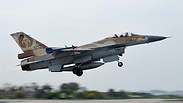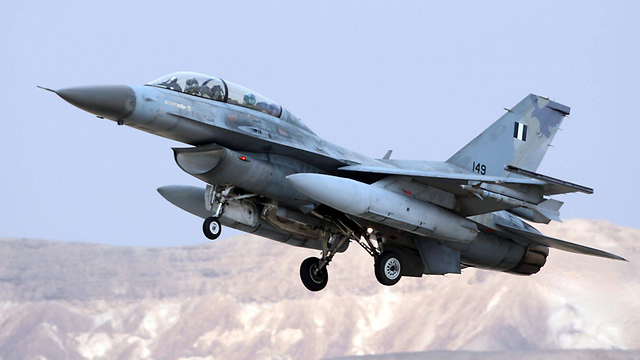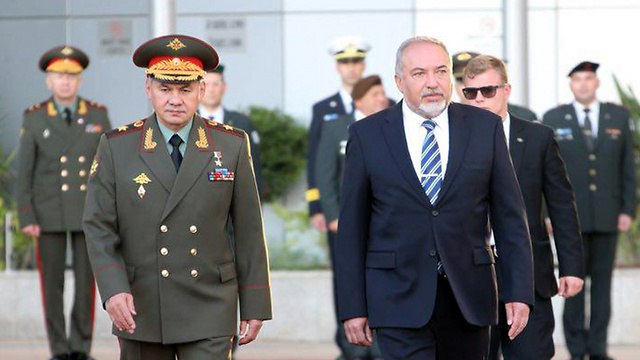
Israel is done threatening Syria
Analysis: After realizing that both the Syrians and the Iranians were not taking its warnings seriously, Israel could no longer afford to keep threatening Syria over its anti-aircraft fire without responding. On Monday, the IDF had an opportunity to fulfill the ‘open skies’ policy, while making it clear to the Iranians as well that the Israelis are dead serious.
A rule of thumb in the Israeli security policy determines that any anti-aircraft system with missile batteries that “illuminate” and “close in” on an IAF aircraft will be destroyed, all the more so if the missiles have been launched. Israel’s air supremacy—in other words, its freedom of action in the arena—is one of the most sensitive issues in the Israeli security perception, which guarantees its military supremacy.

Since March 2017, Syria has changed its policy of responding to IAF activities in the country: It no longer ignores and hides behind Israel’s denial of the strikes, but it actively responds in an attempt to shoot down an Israeli aircraft or unmanned aerial vehicle operating in the arena.
During these months, IAF photography and patrol flights were attacked with Syrian anti-aircraft fire quite a few times. Israel avoided reporting these events—either due to diplomatic-security reasons or because the conditions for responding by attacking the batteries had not been created yet—but it did convey explicit warnings to the Syrians, which apparently were not taken seriously in Damascus.
After realizing that the Iranians were not taking Israel seriously either (Tehran appeared unfazed by the Israeli warning that it would not accept permanent Iranian bases on Syrian soil), Israel could no longer afford to keep threatening without responding. On Monday, the IDF had an opportunity to fulfill the “open skies” policy while making it clear to the Iranians as well that the Israelis are dead serious.
So Israel not only attacked but also made the strike public, consciously giving up the ambiguity which has so far allowed Syrian President Bashar Assad to avoid a dramatic response. Whoever greenlighted the strike likely estimates that the battery’s destruction and the publication won’t necessarily lead to a military deterioration in the region.

There is an attempt here to return the Syrian president to his natural proportions. In the past few weeks, Assad has been acting as if he won the war. Suddenly, he is going out to pray far from the secured area in Damascus, his government ministers are touring the fronts, and in general, the Syrian government feels firmly in the saddle. The purpose of the publication is to say to him: If you keep provoking us, we’ll keep dwarfing you.
This air strike cannot be disconnected from Russian Defense Minister Sergei Shoigu’s visit to Israel and from his meeting with Defense Minister Avigdor Lieberman on Monday. Israelis who were present in the meeting noticed the Russian minister’s bad mood, perhaps because of the timing. An Israeli attack on a Syrian military facility, deep within Syria, while the Russian defense minister is in Israel, basically conveys the following message to the Syrians: Russia won’t automatically back you, and if Assad choses to let the situation deteriorate—he will pay for it.
By the way, this isn’t the first time Lieberman approves a strike in Syria while meeting with the Russians. He approved a strike several months ago too, as he was meeting with his Russian counterpart in Moscow. He explained to surprised defense officials that the Russians despise weakness and don’t respect those who don’t fight for their interests.










